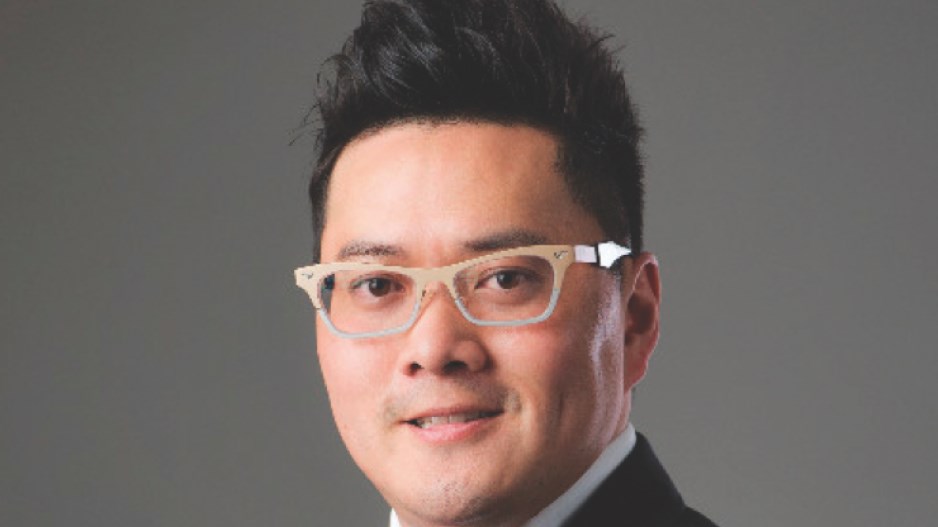B.C. has been active in trying to attract overseas investors for decades, but only recently have officials turned their attention to a group that has been largely overlooked – overseas Canadians.
In September, Trade and Invest BC’s Hong Kong office held two events, one with the University of British Columbia (UBC) alumni association, another with the Hong Kong chapter of Chartered Professional Accountants Canada (CPA Canada), to capitalize on what officials describe as a rising wave of interest among people with Canadian citizenship or permanent resident status to return to B.C. to further their business and careers.
What was surprising, said Derrick Lee, managing director, Hong Kong and Macau, at Trade and Invest British Columbia, was not only the level of interest expressed by former B.C. residents living in Hong Kong to move back, but also that they were clear in saying they are not coming back to retire or to pursue additional education.
Lee said speaking with members of the alumni association was instructive.
“We heard them mention that there is a trend of people talking about moving back home – but to work, and not to retire or study,” he said. “A lot of people were asking about the development of the B.C. tech industry…. This is a newer trend.”
Lee said B.C. officials began catching on to the trend earlier this year and began working with stakeholders in Hong Kong to promote what he described as “bridge-building” efforts to reintroduce B.C. as a place to do business for Canadians who have lived in Hong Kong for up to a decade or more. The UBC alumni association event, held in mid-September, drew a near-capacity crowd of 40 despite taking place on the eve of typhoon Mangkhut, a Category 5 super-typhoon that registered a direct hit on Hong Kong on September 16.
Later in the month, the second seminar, in association with CPA Canada, targeted professionals and accountants looking to return to B.C. to work, and that event was met with similar enthusiasm, Lee said.
Statistics from 2011 showed that there were close to 300,000 Canadians living in Hong Kong, almost 85% of them Canadian-born. There is also a significant base of Hong Kong residents who received post-secondary education at schools like UBC and Simon Fraser University (SFU), and those students maintained strong emotional ties to B.C. after returning to Hong Kong. That overseas population is one of the main reasons White Spot decided to expand its Triple O’s brand to the Hong Kong market, where the restaurant enjoys a more upmarket status than other burger eateries.
Now, many in that same demographic sought by Triple O’s are considering a return to B.C., and Lee said most of the attendees of the seminars are in their late 20s to mid-40s – and family and lifestyle issues remain key drivers for considering leaving Hong Kong.
“Hong Kong continues to have a few challenges, such as pollution and environmental issues,” Lee said. “Also, the education system here is very competitive. The Asian model is very different from what you see in the West, and for many families with kids, these two factors are driving them to think: ‘Where else other than Hong Kong?’”
Hong Kong has also chafed under increasing pressure from Beijing since the Umbrella Movement in 2014, and the resulting political tensions have created a level of uncertainty for Hong Kong businesses and the population at large that has not been seen in the city since it returned to Chinese rule in 1997.
Lee said the seminar’s focus, in addition to highlighting opportunities in “young” industries such as technology and digital animation, lies squarely with the promotion of other B.C. markets beyond Metro Vancouver. Many seminar attendees were surprised at the increasing business activity in markets like Victoria and the Okanagan, he said, adding that the province hopes more people will consider these smaller centres as destinations for investment.
“These Canadians in Hong Kong have huge potential, because they have been working all this time in Hong Kong, and some of them have already accumulated some amount of capital during that time,” Lee said. “Given Hong Kong’s lower taxation and other benefits, these Canadians now have a pot of money, and we can see that coming back to B.C in a number of ways. They can buy into a business or launch their own company, and that could have a big impact on the B.C. economy because all that would create new jobs.
“In private enterprise, you can almost look at this group as repeat customers. That’s always going to have a higher rate of return in terms of the promotional work that we do. These people have emotional ties to B.C.; their heart is in B.C. So for them, it’s up to us to bridge the link, to tell them what has been happening in B.C., because B.C. has changed quite a bit.”
Additional events will be planned in 2019. Officials said most people they’ve engaged say they intend to move back to B.C. within three to five years. Lee said that if these former B.C. residents decide to return, it would further enhance the province’s ability to do business abroad, given these candidates’ working experience in a global hub like Hong Kong.
“This is definitely not going to be just a one-off event,” he said. “There has to be a continuous effort and conversation … keeping the idea of moving back to B.C. alive so that, in a few years, we can begin to see the transition happening.”
Planning for an event involving SFU alumni is already underway, he noted. •




